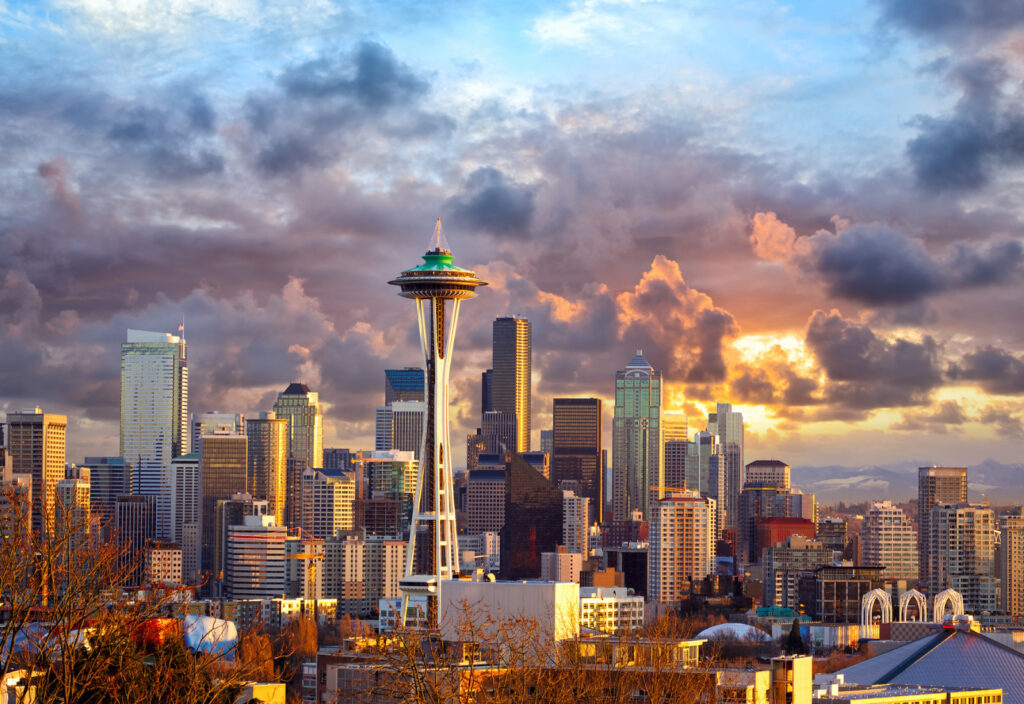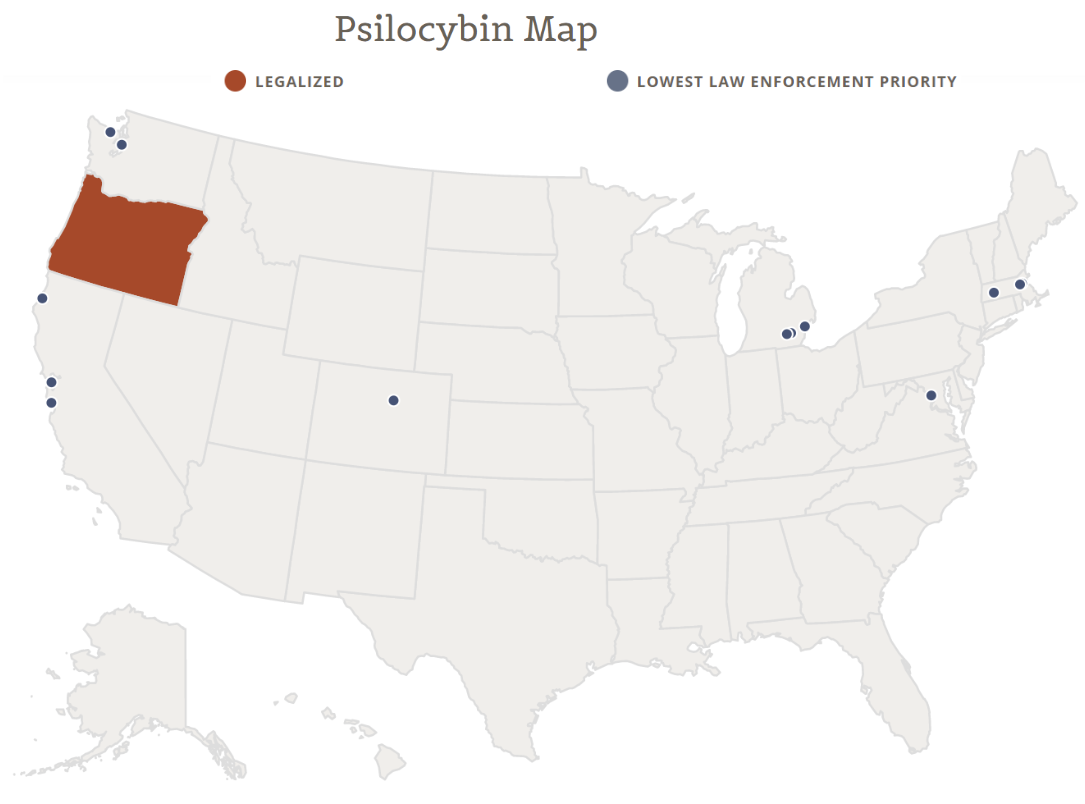The outlook for psychedelics legalization in Washington State, and specifically psilocybin legalization, looks promising and continues to evolve at a rapid pace.
The Spokane Bar Association recently held a seminar on emerging issues in the Washington psychedelic ecosystem. In October, Seattle became the largest in the United States to decriminalize psychedelics. As the second largest city in Washington, Spokane has the choice follow in Seattle’s footsteps or remain steadfast in its drug policy. Spokane attorney Pat Donahue led the discussion, covering Washington Senate Bill (“SB”) 5660 and how it relates to Oregon’s Measure 109.
SB 5660 on Psilocybin Legalization: Gone But Not Forgotten
Washington’s SB 5660 is a bill written in the same spirit as Measure 109. We gave an overview of that bill, including our law firm’s contributions, here. SB 5660 essentially legalizes adult use of psilocybin, so long as the substance is administered by a licensed facilitator at a service center. While SB 5660 and Measure 109 both legalization psilocybin through a clinical format, there are two key differences.
First, SB 5660 provides a medical exemption for those unable to travel. This would allow for clients with mobility-limiting disabilities to receive psilocybin services in their home. Further, people with other medical issues could qualify for this exemption. For instance, individuals who suffer from cluster headaches could benefit from psilocybin. These individuals should have the option to access such care without the pain caused by traveling to a service center.
Second, the bill establishes a social opportunity program to alleviate harm caused by the War on Drugs. Drug-related laws have historically disproportionately affected impoverished and marginalized communities. The social opportunity program would thus empower members of such communities become licensed for psilocybin services; for instance, the program would offer reduced licensing fees and technical assistance to those applicants.
Unfortunately, the bill will not become law in 2022. The Health and Long Term Care subcommittee received SB 5660 in January and held a public hearing on the bill February 2, 2022. The bill remained with that subcommittee until the legislature ended on March 10. The bill will have to be refiled in a future session to become law.
However, the bill’s reception is promising to its supporters. According to Pat Donahue, over 400 people attended the bill’s public hearing. Donahue also stated that only 100 of those in attendance did not support the bill. If this turnout is indicative of the entire state, most people in Washington would support passing SB 5660.
Taxation and Psilocybin Businesses
Donahue’s associate Taylor Loyden gave a presentation on how the federal government will likely tax psilocybin service centers. The psilocybin industry would likely pay taxes similar to the cannabis industry. Under IRC § 280E, businesses are not allowed tax deductions if they are connected to “the illegal sale of drugs.” While cannabis is legal for retail sale in Washington, it is still a Schedule I substance under the Controlled Substances Act. This means that federal tax deductions are not available to cannabis businesses, who pay up to three times more in taxes than other businesses. Psilocybin service centers would be taxed the same way unless federal tax or drug laws change.
View the US Map of Psilocybin Legality by State
Psilocybin’s Future in Washington: ESSB 5693
SB 5660 may have died in a subcommittee during the 2022 session. Yet, Washingtonians are not waiting for the next session to make progress on psilocybin. Donahue described Engrossed Substitute Senate Bill 5693, Washington’s spending bill, and how it allowed for a future for psilocybin in Washington. Namely, ESSB 5693 creates a psilocybin stakeholder group.
In Section 211, titled “FOR THE STATE HEALTH CARE AUTHORITY—MEDICAL ASSISTANCE,” subsection (99) sets aside $200,000 to investigate psilocybin and his possible medical uses in Washington. Our own Mason Marks drafted large portions of the budge provision for this group’s creation. The subsection also created a stakeholder group who will conduct the investigation, and who must report its findings to the legislature. Members of this group must include:
1) the secretary of the department of health, or a designee,
2) the director of the liquor and cannabis board, or a designee,
3) the director of the department of agriculture, or a designee,
4) a military veteran or veteran representative,
5) two indigenous psilocybin practitioners,
6) a disability rights advocate,
7) a nurse,
8) a psychologist,
9) a mental health counselor, therapist, or social worker,
10) a physician,
11) a health researcher,
12) a cannabis industry representative,
13) a LGBTQIA advocate,
14) a member of the psychedelic medicine alliance of Washington, and
15) two members with experience using psilocybin.
ESSB 5693 has passed the legislature and, as of the time of this blog post, awaits the governor’s signature. The stakeholder group’s first meeting is June 30, 2022, and on December 1, 2023 the group must present a brief report to legislature. Its final report is due December 1, 2023. Stay tuned.


























